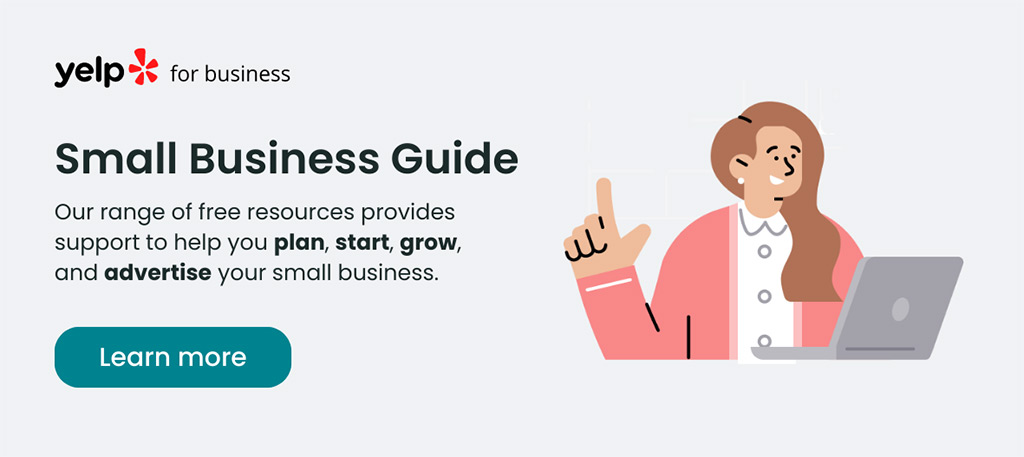Why is marketing important for small businesses?

“I want to build a business, but I don’t care if I make any money,” said no one ever. Your business can’t thrive (and neither can you) if you don’t have customers or clients. But why is marketing important to create a thriving business? It’s simple—effective marketing connects you to prospective buyers. Read on to discover how to use strategic marketing initiatives to boost your bottom line.
Why is marketing important?
There are three major reasons why marketing is important: making connections, building trust, and laying a foundation for the future.
1. Connect with potential customers

The first step toward creating a marketing strategy is to conduct market research, which helps you understand your potential client’s biggest pain points. The more you understand your target market, the more you can use messaging aligned with their problems and show your products as possible solutions.
Your audience has to know you exist, so some of your marketing tactics are meant to introduce you to new customers. Whether it’s through consistent posts on social media platforms, your blog, videos, direct advertising, or other channels, service providers and retailers alike need to continually connect with prospective customers to build brand awareness. The importance of marketing at this stage is crucial to building an audience of people who might buy from you at some point in the future.
2. Build trust to convert customers
Once you’ve made these potential buyers aware of your products or services, you have to earn their trust. In this stage, think about marketing efforts that showcase your unique value proposition to your target audience. You might provide them with case studies, special deals, or proof of your expertise in your field to earn this trust.
To create effective marketing and reach your customer base, you’ll continue to nurture that audience of followers so they get to know you over time and become more comfortable with the idea of doing business with you.
It might seem counterintuitive to provide great information for free in the hope they hire and pay you someday, but this marketing tactic moves your company out of brand awareness initiatives and into the realm of possible purchases with those same customers.
3. Lay the foundation for long-term relationships
The third reason good marketing is important is directly related to your bottom line. You want people to buy from you, sure, but that’s not the only way your customer base can help you.
As business owners, your current and future customers are the best word-of-mouth marketing you could hope for. Their experiences can lead to referrals, testimonials, and repeat business, so customer loyalty should be a top priority for any business, even if you work with one-time customers. Loyal customers sing your praises, write reviews, and make it easier to fill your sales funnel for future business success.
How to get the most out of your marketing activities

Marketing doesn’t have to be overwhelming. By focusing on the three strategic steps below, you can make marketing easy and successful at the same time.
Create a marketing plan
You can’t do it all. This is a common pitfall for small business owners who don’t have a full-time marketing staff and can’t afford a marketing agency. The owner becomes the Chief Marketing Officer by default and spreads their efforts too thin, so that no strategy gets the time or resources it needs for a full test.
Use a small business marketing plan to keep your strategy realistic. Update the plan every quarter as you gather more information about what’s working—and what’s not working. For example, if you learned that last month’s direct mail campaign didn’t yield any new, high-quality business leads, see if there’s room to return to a process that works, or try another one altogether.
At a bare minimum, you need a content marketing plan. This includes search engine optimization (SEO), social media marketing, and blogs. Content marketing strategies are based around offering free and helpful information to your target audience to inspire them to take some kind of action. This action might include:
- Signing up for your email list
- Downloading an app
- Checking out your online reviews on platforms like Yelp
- Following your social media pages
- Opening a chat on your website
- Booking a phone call
Target people based on their location in your funnel
These three different reasons to engage in marketing are all connected to the bigger idea of a marketing funnel, which is the process of taking your viewers or followers through the customer journey—from gaining brand awareness to becoming a buyer. Marketers use the funnel shape to describe this because at each stage of the funnel, more people drop off and only some will move closer to the point of purchase.
As a marketer, it’s crucial to have messaging campaigns aligned with each stage of the sales funnel: awareness, interest, consideration, intent, evaluation, and purchase.
The biggest part of the funnel—the top— is called awareness. Using business marketing tactics that introduce you to a customer through content marketing is a very successful tactic in this early phase of the funnel. Remember your audience might just be learning about you and isn’t ready to commit to your product or service as their solution. Think of this as a research phase and provide as much helpful information in social media posts or SEO-friendly web content as possible.
Once you’ve captured the interest of buyers, it’s your job to build that trust with them. This is when strategies like newsletters, classes, and targeted content perform well. Your buyers move into the consideration phase from there—in this stage, you might use strategies like coupons or special offers to get their interest. Once customers have evaluated your offer and determined you’re the best fit to solve their problem, they become buyers.
The moral of this marketing strategy story is to target your marketing based on where that person currently is in your funnel. If they just learned about you yesterday, they’re unlikely to purchase from you tomorrow unless you’ve earned their trust quickly with word-of-mouth referrals.
Measure your results with strategic marketing
The only way to know for sure if something worked for your audience is to set a hypothesis for your marketing campaign, and then run that campaign for a set time period. Decide on a marketing budget that will give you enough time to determine if there’s a return on investment. Once the campaign is complete, look back at the performance of your strategy and make any notes for changes to your marketing plan. If it’s a winning strategy, keep going. If not, look at the data and decide why it fell short and consider trying another online marketing tactic.
For example, you might set a marketing hypothesis like this:
“We estimate we will improve traffic to our website by 20% by investing in a content marketing strategy with weekly blogging. We’ll re-evaluate after six months to see how the blogs are performing and whether or not we need to make any changes to the strategy.”
The surest way to build a roadmap for successful marketing is by setting goals and reflecting back on them. Digital marketing moves quickly, so be prepared to run a series of short-term campaigns to see what works best with your customers.
Get your marketing house in order
One of the best things you can do before creating your marketing plan is to claim all your online directory locations and social media profiles. This lends credibility and confirms that you’re a legitimate, operating business.
Why is marketing important? As you can see, it’s a vital part of connecting you to potential customers. By implementing the ideas shared in this guide, you can develop a custom strategy for your company to reach and convert the kinds of customers who are most important to your business.

The information above is provided for educational and informational purposes only. It is not intended to be a substitute for professional advice and may not be suitable for your circumstances. Unless stated otherwise, references to third-party links, services, or products do not constitute endorsement by Yelp.


